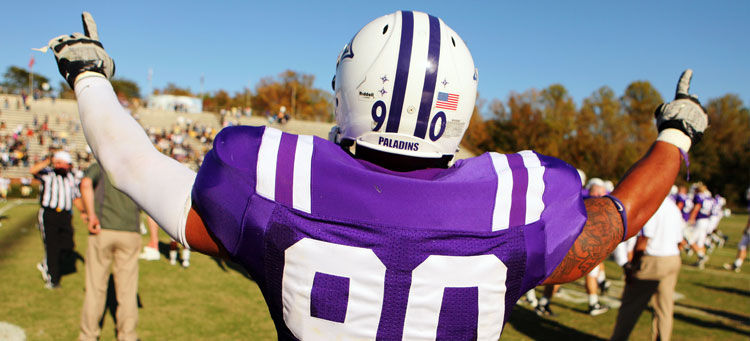It’s now widely known that the budget deficit for the upcoming fiscal year is projected to be around $6.4 million, and for some at Furman, that figure has led them to question the substantial amount of money recently invested in the university’s athletic programs to renovate facilities and add men’s and women’s varsity lacrosse teams.
Several faculty have questioned these decisions, most notably at the recent Presidential Search Committee Listening Sessions, doubting the feasibility of spending such money when debt hangs so closely overhead.
Administrators, however, said they believe that these investments will pay off in the end, increasing enrollment and developing new sources of revenue, raising the question of whether the long-term benefits of improving athletics outweigh the consequences.
The lacrosse team was initially funded by an anonymous alumnus who pledged $5 million to the university in October 2011, the single largest individual commitment in Furman’s history. This money largely funded renovations to the student center, although some funds were also used as start-up expenses for the lacrosse team.
“We believe that the sport will bring additional students, so the increased revenue will help pay lacrosse expenses after the start-up period,” said Amy Blackwell, budget services director for finance and administration.
Other administrators agreed with Blackwell’s position. Dr. Gary Clark, Vice President and Director of Athletics, said that the addition of a lacrosse team was made for strategic reasons, noting that the university identified lacrosse as “the fastest growing sport in the NCAA and very popular in some key admissions markets for Furman.”
Clark said he hopes that lacrosse will attract students from the Atlantic Coast, the Northeast, Florida, and Texas.
President Kohrt said it is difficult to measure the effectiveness of these moves, especially so early after their conception.
“It will take a couple of years before we will know if [this] strategy is successful,” he said via email.
History professor Stephen O’Neill, a former Furman football player, echoed this opinion while suggesting that “it’s very hard to measure how much publicity or public relations Furman gets from its athletic program.”
Administrators suggested that improvements to athletics have the potential to provide numerous benefits, not just an increased applicant pool.
Blackwell said it provides brand awareness for Furman and can strengthen the Furman community and school pride. Clark and Kohrt both suggested that sports increases diversity in the student body — ethnically, geographically, and socioeconomically.
Kohrt also highlighted the success of Furman athletes in academics, noting that Furman athletes have a graduation rate that ranks “top ten in the country.”
Lacrosse is not the only addition to Furman athletics within the last few years. The football stadium is undergoing renovations that cost around $12 million, but the entire project is funded through philanthropic gifts. Improvements to baseball facilities were also funded through donations. The softball press box was paid primarily through donations, and a portion was paid through the revenue athletics brings to the university.
One of the main causes of the current budget has been increases in financial aid expenditures. Financial aid had been reduced in each of the two years prior to this year, but Blackwell stated that this strategy was unsustainable and that financial aid has “returned to a level near those of 2010.”
Furman faculty and staff are already feeling the effects of the deficit, and it has been made clear that cuts are coming. O’Neill said that the lack of salary increases and the possibility that faculty and staff will not have contracts renewed has made everyone, not just faculty, “painfully aware that cuts have to be made.”
“Everybody has to tighten their belt, and there is no denying that,” O’Neill said.
“A larger crisis in the ability to finance higher education … is putting more tension on the costs that athletics have”
O’Neill said there are also potential dangers to cutting athletic programs and expenses. Many alumni and Greenville locals feel an attachment to Furman through support of athletics, and O’Neill suggested that others schools which have tried to cut programs or deemphasize athletics have suffered significant consequences.
Kohrt said Furman is working to resolve these financing issues. He emphasized that “$4 million have already been removed from annual operating expense since late 2008” and said that committees of faculty, staff, and trustees are working to expand the scope of these earlier efforts.
O’Neill said that, since teachers are primarily exposed to students in a classroom environment, they “naturally are going to want to protect the academic enterprise first and foremost.”
As a result, anything that might undermine academics is “going to be perceived as a negative thing,” which he argued is “what we’re seeing in the faculty and on campus more generally.”





































